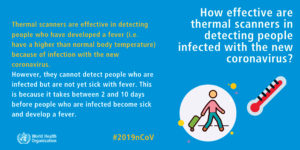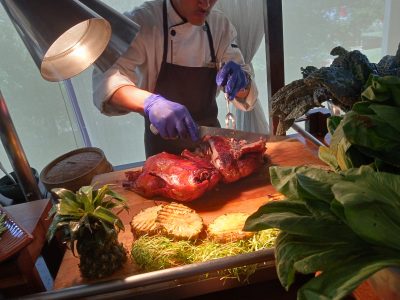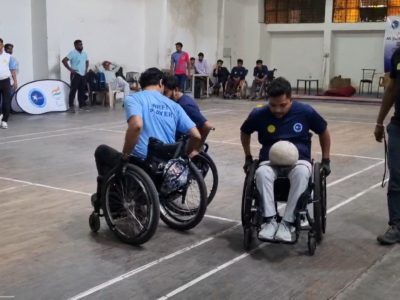A lot of misconceptions have been doing the rounds behind the Coronavirus. Here is what the doctors advise
WITH A total 166 confirmed cases in India, the highly communicable Coronavirus has the government and medical facilities across the world working towards its containment, as such precautions are mandated and should be followed to ensure fallout from the outbreak can be kept at a minimum.
In such a scenario, awareness is the best weapon individuals have for maintenance of public health. Equally important is curtailing the spread of misinformation and debunking myths that have spread like wildfire due to rumours and false information. Misinformation not only severely poses an impediment in the way of containment but also increases paranoia and creates panic.
Doctor Vikram Jaggi (M.D, D.N.B, Founder and Director of Asthma Chest Allergy Centre) debunks certain myths surrounding the spread of coronavirus-
GET IT RIGHT
- Does consumption of alcohol prevent infection from the Coronavirus, as is being spread through messages and social media?
- No, alcohol consumption offers no protection against the spread of infection from the Covid-19
- With the increase in average daily temperatures, will the threat from Covid-19 subside?
- In general, viruses are inactivated at very high temperatures. However, the experience with the novel Coronavirus thus far is that it is spreading in countries with temperatures of up to 35 degrees centigrade, as seen in Indonesia and Singapore.
- Is consumption of non-vegetarian food safe?
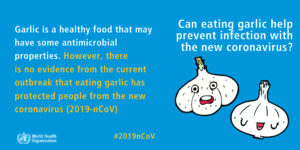
- Although this virus has jumped species from animals to humans, at present it is spreading from human to human. Hence consumption of well-cooked non-vegetarian food is safe.
- Are there any possible Ayurvedic or herbal remedies that people can use?
- Turmeric and garlic have traditionally been believed to have anti-infective properties and foods rich in Vitamin C (like amla) have a general immunity boosting effect. So, there is no harm in consuming them. However, this should not lull us into a false sense of security nor detract us from religiously following personal hygiene and other common-sense precautions.
- Are there any precautionary measures — in terms of food and beverages that people can use to ensure a healthier immune system, thus, reducing their chances of contracting the virus?
- Plenty of warm fluids, fruits and vegetables, a good sleep, exercise, yoga and pranayama are all good for general health, and must be practised as a routine.
- Does the use of ibuprofen accelerate the multiplication of the virus leading to more severe deterioration of health conditions, as is being reported in Italy?
- Paracetamol and ibuprofen are medicines commonly used for fevers. They have both antipyretic (bring fever down) and anti-inflammatory (reduce body inflammation) properties. Paracetamol is more antipyretic and ibuprofen is more anti-inflammatory. Inflammation in response to an infection, although causing fever, is useful for fighting the virus. Hence, paracetamol is the safer medicine. Alarm against the use of ibuprofen was raised by the French government for Covid cases. Many other medical agencies feel there is not enough evidence to state that ibuprofen is unsafe. In my view, paracetamol should remain the primary medicine to be used for the novel Coronavirus.
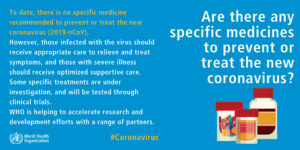
Clean up
Coronavirus has been known to spread from surface contact, as it can survive at least nine hours outside the host, as individuals we on a daily basis come in contact with many surfaces which could possibly be teaming with different microorganisms — washing hands after coming in contact with such surfaces can reduce the chances of one catching the virus and ensure greater safety. Some such surfaces which call for greater attention as they have a multiple individual handling them are:
- Morning milk bags
- Elevator buttons
- Doorbells
- Newspapers
- Car door after wash
- Garbage — via domestic staff (also their ingress into housing society, and movement from house to house)
- Raw vegetables and fruits
- Shop counters
- Office pantry, lunchroom, washroom, and door handles
- Garden seats
- Play area swings, etc. (though for an unknown reason, young children thankfully are less affected)
- Maids touching multiple surfaces at home
- All door knobs
- Packets of delivery boys – Amazon, Swiggy, etc
- Any shopping packets
- Currency notes and coins
- Uber, autos, etc
- Bus and train handles
- Shoes, etc., which may step on spit
- If travelling by air, then multiple points from departing terminal to arrival terminal
India has likely hit the exponential upward part of the contagion, and the precautions in the next 2-4 weeks are very important
Little pills
There are also certain misconceptions surrounding cures for the virus – Dr Johal (Homeopath) says.
Homoeopathy was successful in treating the flu epidemic in the past, particularly in 1918 after World War I. In the same way, in this pandemic homoeopathic medicines like Ars alb 30, Camphor 30, Bryonia 30
should be given trials to help mankind. Medicines taken as prophylactic can boost the immune system to fight against any flu-like condition including Covid 19. However, there is no vaccine in homoeopathy for Coronavirus.
Dr Reshma is an advocate of wellness, prevention and holistic health. Instagram handle: dr.reshmakhattarbhagat
